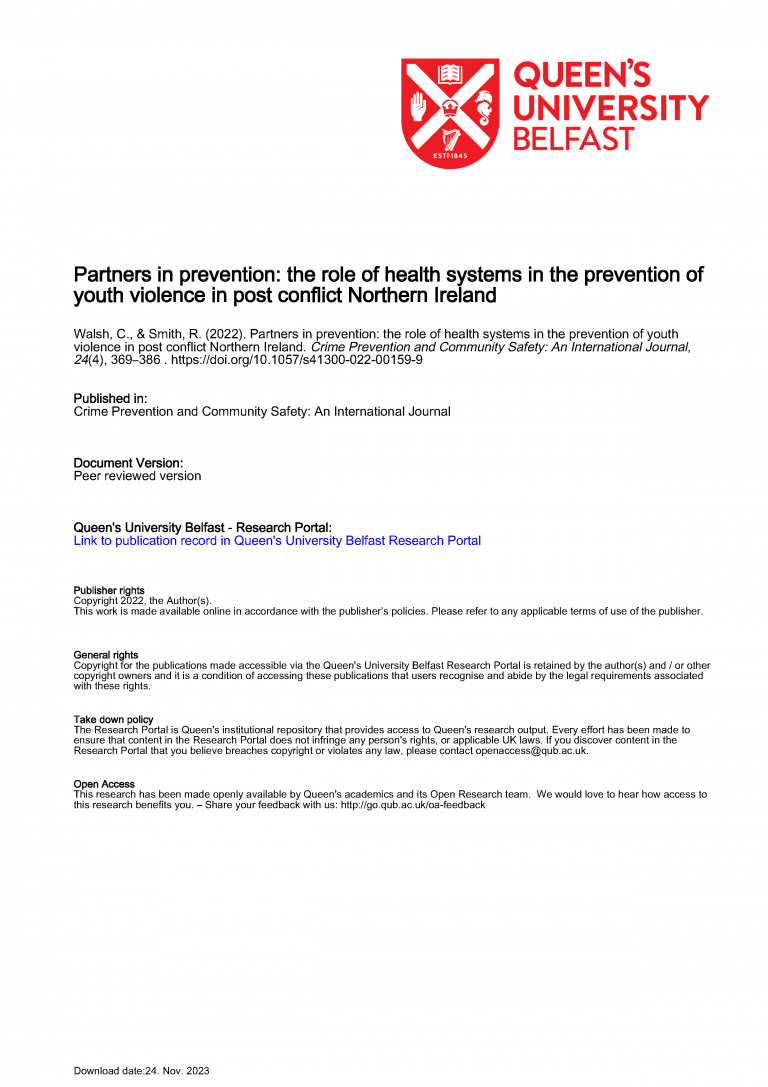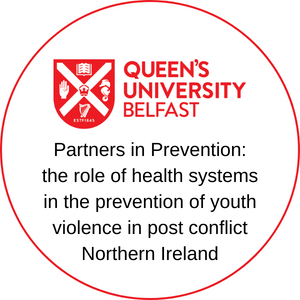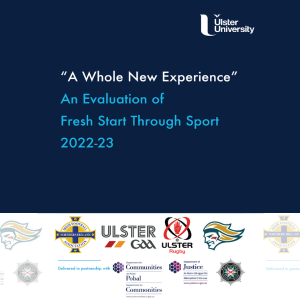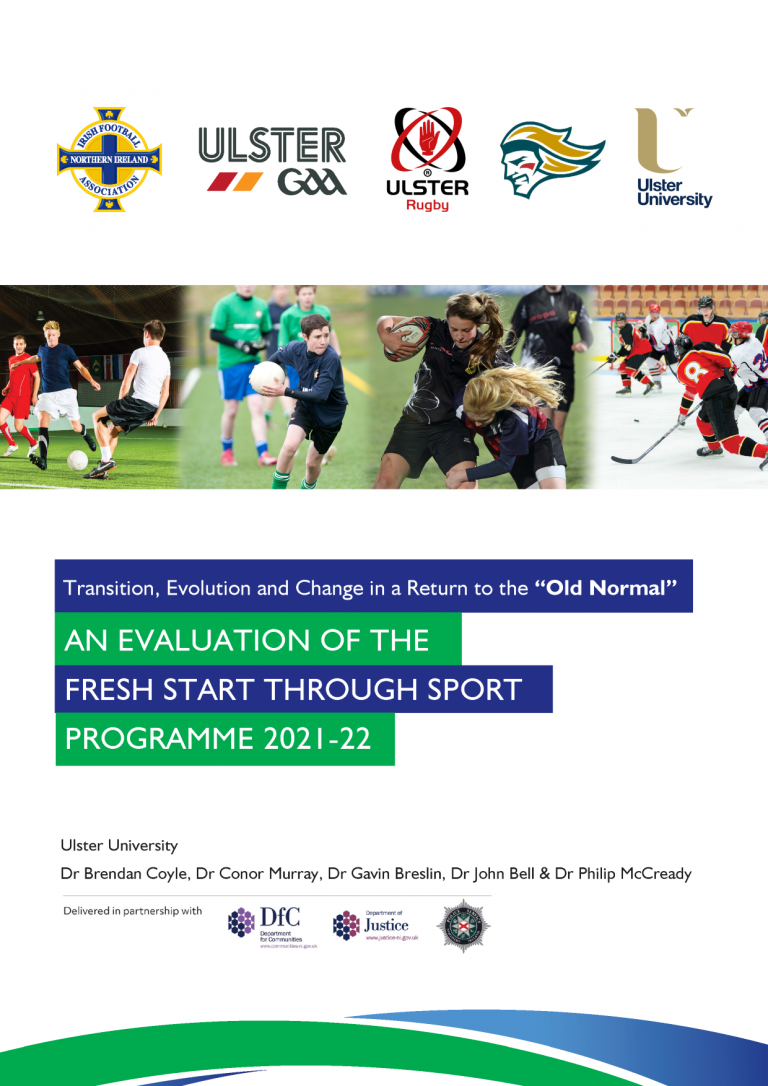
A study, funded by the NI Executive’s Tackling Paramilitarism, Criminality and Organised Crime Programme and published in ‘Crime Prevention and Community Safety – An International Journal’, examined the potential for leveraging health data to prevent youth violence. The research analysed data from a Youth Work project, also funded by the Programme. CONNECT places youth workers in emergency departments (ED) to support vulnerable young people and reduce the physical and social effects of violence. The report focuses on 91 young people aged 12-25 who presented to an ED in Northern Ireland over a one year period (August 2020- August 2021) for treatment of violent injuries.
Key findings showed that violence-related ED visits peaked in late summer, with August and September accounting for over one-third of the annual cases. Men made up the vast majority of patients. Afternoon and early evening appeared riskier than late night for younger youth specifically. Finally, almost one-quarter of the patients had multiple ED visits for violent injuries, pointing to a high-risk subgroup in need of targeted intervention.
The authors conclude that prospectively collecting even basic information on violence-related injuries in EDs can reveal useful patterns to inform prevention programming in the community. They argue health systems should embrace public health approaches to curb violence by tracking relevant data and identifying victims early to connect them with appropriate services. Overall, the research demonstrates the untapped potential of hospital data to supplement crime statistics for a more comprehensive understanding of youth violence.
To read the report, please click on the link below.





